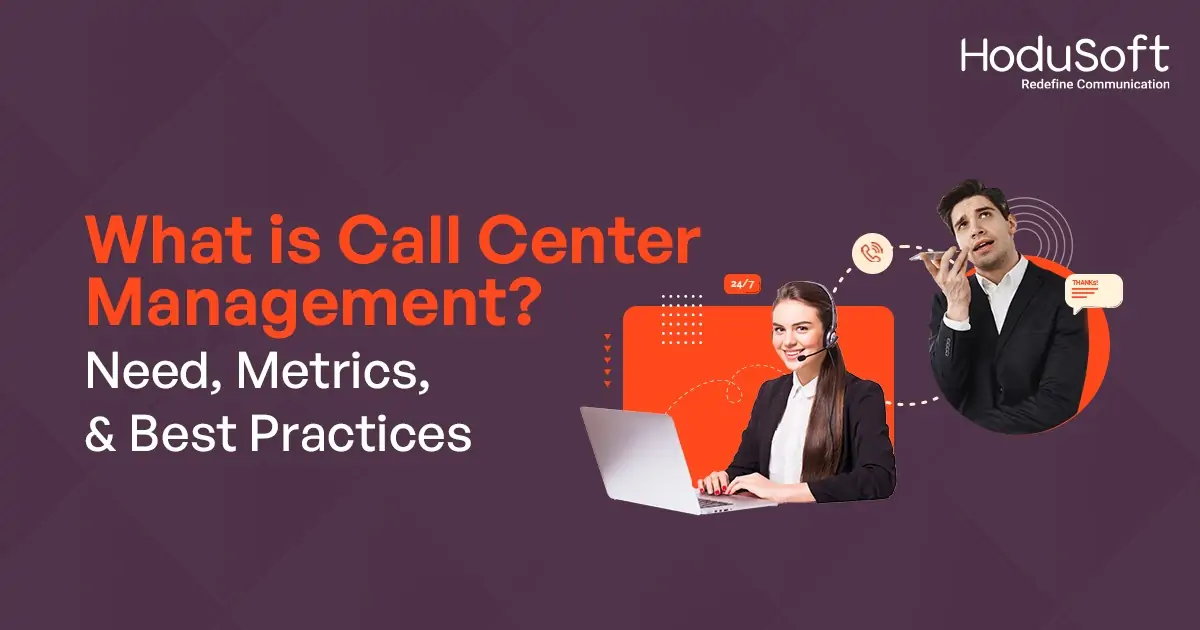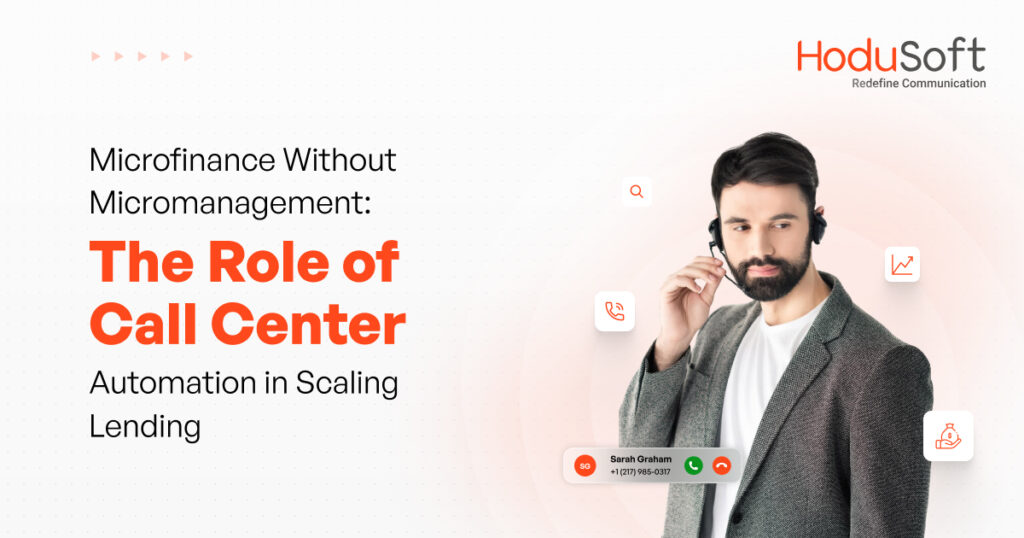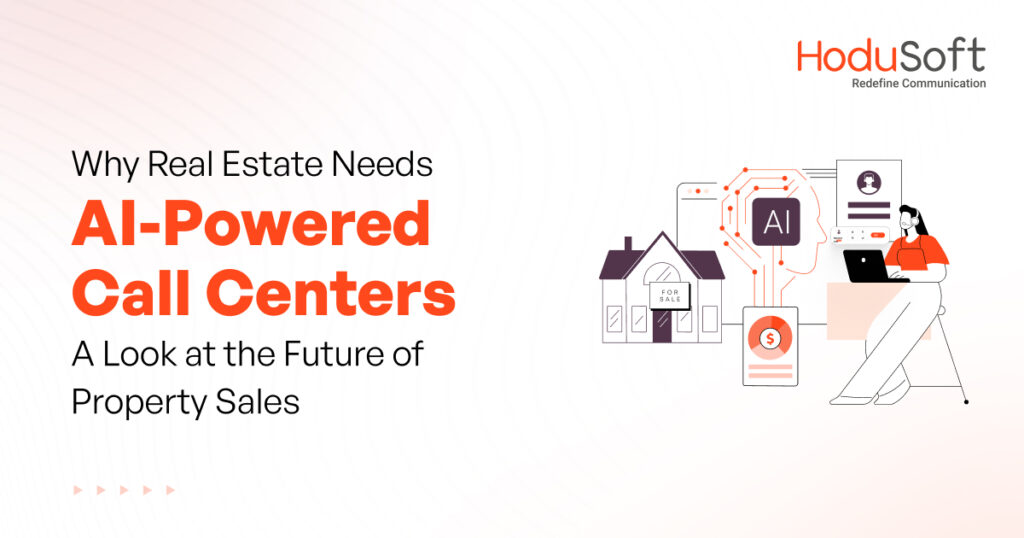What is Call Center Management? Need, Metrics, and Best Practices
Businesses need a strong communication strategy to deliver seamless customer experiences. Call center management backed by cutting-edge call center technologies helps managers oversee their teams and be on top of things. By implementing call center management, organizations can accurately measure, monitor, and optimize their performance. New-age call center technologies make managing data easier for call centers, leading to enhanced decision-making capabilities and improved customer service operations.
In addition, these technologies allow organizations to gain an advantage over their competitors by responding more quickly to customer queries. With advanced call center management techniques in place, businesses can tap into the potential of their team and use it as an effective tool to drive brand loyalty and prosperity.
What is call center management?
Call center management refers to the entire process of managing the daily operations of a call center. It involves tasks such as employee hiring, training, and workforce scheduling to efficiently manage telecommunication activities like inbound and outbound calls. The objective of call center management isn't bounded to just customer satisfaction. It's also about ensuring that agents are equipped with the right tools and data to handle their tasks efficiently.
Why do businesses need call center management?
Call center management plays a significant role in determining business efficiency and customer service quality. Effective call center management results in satisfied and happy employees, greater productivity, and happier customers. Here is how businesses can achieve these results.
- Utilizing advanced features of call center software
- Tracking critical key performance indicators (KPIs)/ metrics
- Implementing best practices of the call center industry
- Balancing operational costs and revenue
In this blog, we have highlighted how call center management can be made seamless using call center software while tracking essential metrics and executing standard call center practices.
5 metrics to evaluate the success of call center management
Monitoring the right metrics in call center operations promotes precision and growth. Such metrics help businesses identify agents’ strengths and weaknesses and work on specific areas for maintaining a better customer experience.
Let’s unwrap some useful call center metrics that provide deep insights about consumer interaction and can be leveraged by businesses to improve CX.
1. FCR
First Call Resolution Rate(FCR) refers to the successful resolution of a customer query within their first call without any follow-up, such as transferring, escalating, pausing, holding, or disconnecting the call. It shows how efficient the call center operations are in solving customer issues.
Customers may feel frustrated if they have to call back multiple times to get their answers, creating an unsatisfied customer experience and impacting the brand’s reputation. Therefore, FCR becomes a crucial metric for customer relationship management. It is an excellent way to assess call center operations and agent effectiveness.
A call center’s FCR metrics can be improved in multiple ways, such as:
- Establishing a resourceful and knowledgeable base for FCR escalations
- Providing self-service options to resolve simple issues
- Allocating feedback by conducting surveys
- Tracking repeat calls through speech recognition
- Examining the FCR push-down cause
2. Average Handle Time (AHT)
Average Handle Time refers to the average time spent by agents to handle or manage a call from start to end. It also measures customer hold times and the time required for post-call tasks and administrative work (such as filing a form or updating the CRM).
In most cases, businesses should have lower AHT. Although too low, AHT signals about some ongoing nuisance operations. For instance, if an agent deals with an angry customer who opts to stop the service. Having a fear in mind that his AHT would shoot up, the agent would immediately accept the customer’s request. Imagine if agents won’t take the stress of maintaining low AHT. They would spend more time on calls and manage to calm the customers by successfully addressing their concerns.
Thus, this metric is very helpful in organizing team benchmarks and determining agents who need more training to serve customers better. It also helps to reveal issues beyond agent capability, such as complex workflow or obsolete technology experiences.
There are several ways businesses can follow to reduce their AHT
- FAQs automation
- Recording & Reviewing phone calls
- Giving more emphasis on agent training
- Using IVR technology
3. Customer Satisfaction Score (CSAT)
CSAT is an essential metric for measuring customer satisfaction with businesses. It gives an overall score of customers’ happiness with using a brand’s product and dealing with its customer service. A business CSAT score should always rise as it signifies an excellent customer experience. It positively impacts the business’s revenue generation as happy customers are more likely to recommend the service to others.
CSAT scores are calculated using simple survey results based on customer experiences. Businesses can ask their customers to rate their satisfaction experience with a particular agent interaction. Companies can use these scores to get insights into their operations and opt for steps to improve them.
Although CSAT scores depend on various factors, there are ways to improve them.
- Working on customer feedback
- Implementing multi-channel support
- Improving products and services
4. Net Promoter Score
Net Promoter Score(NPS) is a metric that precisely tells about a customer’s interest in a brand. It enables businesses to gauge their customer’s trust and loyalty.
A scale from 0-10 is used to ask: “How likely or unlikely are you to recommend our company to your friends and peers?” The business promoters will score between 9-10, whereas passives and detractors would suggest a score of 7-8 and 0-6. As with other customer experience metrics, a high NPS score means a delighted customer who is satisfied with the customer experience.
Tips for businesses to foster a high NPS score:
- Work on the customer automation journey
- Increase the customer response time
- Retain customers through live engagement
5. Agent Utilization Rate
Agent utilization rate is the average time agents spend managing calls within a specific time to the total number of work hours. This metric gives a detailed analysis of the utilized time by the agents across their shifts. It is an excellent indicator to track the agent’s performance and monitor their schedule adherence. The ideal agent utilization rate varies across industries and call types. Businesses need to fix standard utilization rates for their call center. Once accomplished, it can be an excellent tool for allocating goals for enhanced agent performance.
Ways to improve business agent utilization rates :
- Implementing practices for visual assistance
- Working on agent training
- Enabling a collaborative work environment
7 best practices for efficient call center management
As the metrics help evaluate your agents’ performance, there are a few standard practices that can uplift the efficacy of your call center management.
1. Adapting Omni channel communication
76% of customers expect the same level of service across all channels. This expectation can be fulfilled when businesses adapt Omni channel call center solutions. Omnichannel communication is not restricted to just opening up multiple channels for customer interaction. It also involves providing consistent service across all these channels. Moreover, as it integrates communication into a unified platform, managing such communication becomes easier for agents.
2. Delivering personalized customer support
Modern customers dislike brands that offer a standard proposition for all their customers. More than 80% of customers are willing to purchase from brands that provide them with personalized experiences. Utilizing call centers software features like CRM integration and data analytics, businesses can understand the unique needs of every customer. It equips agents with customer insights to approach them with a personal touch. Customers who receive personalized service are more likely to refer the brand to their acquaintances. Moreover, it positively impacts metrics like FCR, conversion rate, and list closure rate, indicating improved call center management.
Read Also: How to Choose Best Call Center Software for Small Business
3. Implementing a call routing strategy
When customers reach out to a business for a specific concern, it is essential to provide them with a quick resolution. But if a business does not have a call routing strategy, the customer may have to get through the hassle of multiple transfers and long waiting times. Adapting a skill-based call routing strategy can eliminate the customer frustration built during such instances. It directs the call to the agent with the matching skill set to resolve the issue. Therefore, it provides customers with a positive experience and also uplifts FCR. It also reduces the call abandonment rate by eliminating prolonged holding time.
4. Tracking agent performance
Call center management can be flawless only when agents are empowered with the right tools to perform efficiently. Call center software aids agents with tools like autodialer, call transfer, call bridging, etc., to enhance their productivity. Moreover, the agent dashboard lets them see their performance assessed based on different KPIs. When businesses track agent performance through live call monitoring, they can assure service quality compliance and back up agents under challenging situations.
5. Identifying agent training needs
Handling thousands of customers every day efficiently requires skilled agents. While most businesses offer basic training while onboarding agents, they neglect training to enhance their skill sets. This leads to a skill gap that hampers the overall customer service experience. Businesses can leverage data analytics to identify the training needs of individual agents and execute targeted training programs. When agents are trained with the skills they were lagging in, businesses can enjoy more engaged agents. It also ensures greater business productivity.
6. Detecting repetitions to implement automation
Call center management seems complex owing to the daily tasks. The number of tasks to be managed manually can be reduced by implementing workflow automation for mundane, repetitive tasks. Call center software aids businesses by automating tasks like contact management, data entry, and call routing. Businesses can optimize human resource allocation when specific tasks unburden them through automation.
7. Relying on data analytics for decision-making
Data has become the backbone of businesses. But analyzing large volumes of data to prepare impactful reports manually is a complicated and time-consuming chore. Call center software eases the process by automatically gathering and analyzing data to prepare reports comprising actionable insights. Such reports can be the foundation for building successful strategies for different business areas such as operations, marketing, sales, etc.
Utilizing call center management tools as a business growth promoter
It’s common for businesses to face high attrition rates due to management gaps between people, processes, and technology. Call center management fills this gap by building a strong foundation for a business communication infrastructure. Its technologically advanced and sophisticated call center software unifies different aspects and maintains stability facilitating business growth. Features such as IVR, ACD, skill-based routing, etc., precisely understand customers’ needs and suggest responses to agents for a quicker resolution. Omnichannel support gives customers choices to connect their brand via a preferred channel. This building of new possibilities for interaction delights the customer and makes them feel valued, often increasing brand loyalty.
If your business needs support from an excellent call center management provider, then HoduCC suits your needs. HoduSoft provides various unified communication tools that allow businesses to hyper-personalize customer service.



